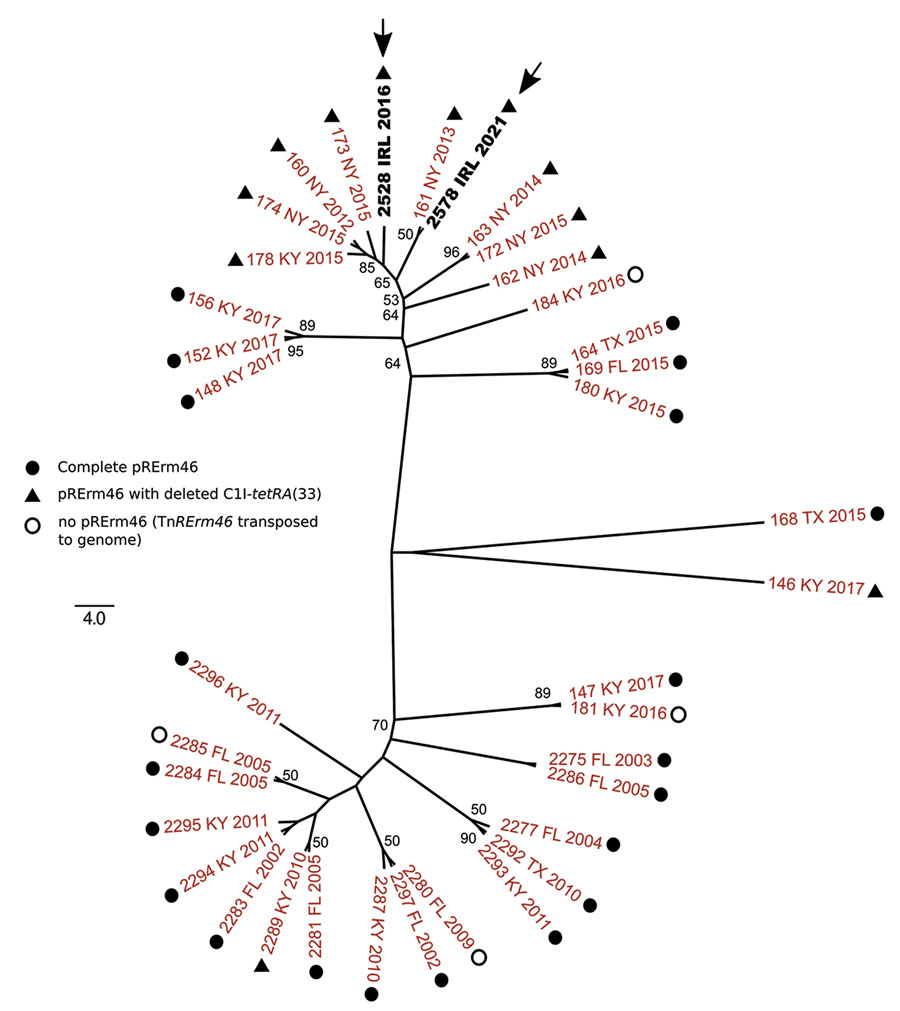Volume 28, Number 9—September 2022
Dispatch
International Spread of Multidrug-Resistant Rhodococcus equi
Figure 2

Figure 2. Unrooted maximum-likelihood tree of multidrug-resistant Rhodococcus equi 2287 clonal complex showing the relationships of the isolates from Ireland (arrows). Whole-genome phylogeny inferred from 45 parsimony informative sites using SNIPPY (https://github.com/tseemann/snippy) and IQ-tree (http://www.iqtree.org) for tree reconstruction. Best-fit model was selected by IQ-tree’s ModelFinder module. Bootstrap values >50 are shown. The genome of the prototype MDR-RE 2287 isolate PAM2287 (National Center for Biotechnology Information assembly accession no. GCA_002094405.1) was used as a reference for SNP calling. Labels indicate isolate name, geographic origin (FL, Florida; IRL, Ireland, KY, Kentucky; NY, New York; TX, Texas), and year of isolation. Symbols indicate pRErm46 plasmid type. Tree was drawn with FigTree (http://tree.bio.ed.ac.uk/software/figtree).